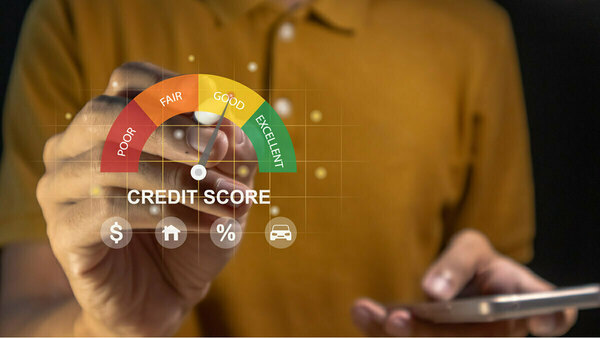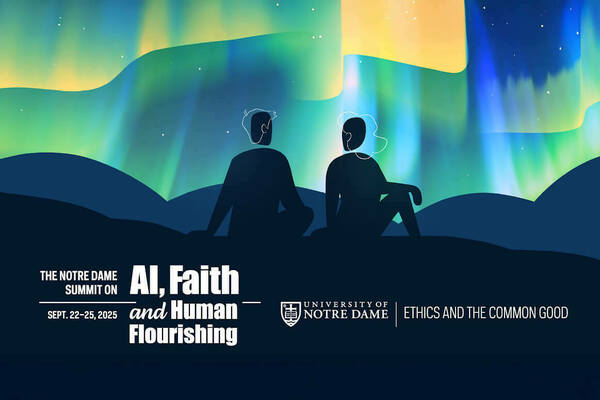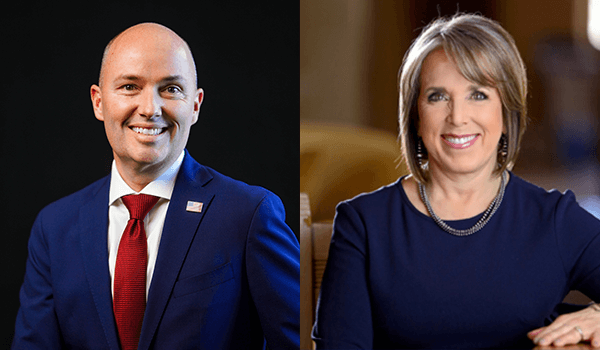No credit history? You might have another way to prove creditworthiness

According to the World Bank, 1.4 billion people worldwide remain unbanked — with little or no access to credit — largely because they lack the formal credit histories required by traditional lenders.
New research from the University of Notre Dame reveals how alternative data — specifically retail transaction data — can be used to create reliable credit scores for individuals without formal credit histories.
“Who Benefits from Alternative Data for Credit Scoring? Evidence from Peru,” forthcoming in the Journal of Marketing Research, offers a scalable, data-driven path forward for bringing millions of unbanked individuals into the credit economy.
Joonhyuk Yang, assistant professor of marketing at Notre Dame’s Mendoza College of Business, along with co-authors Jung Youn Lee from Rice University and Eric T. Anderson from Northwestern University, found that retail transaction data can significantly improve credit access for consumers without a formal credit history. In fact, the data allowed credit card approval rates for “no history” applicants to jump from 16 percent to as high as 48 percent.
“It’s the classic catch-22 in lending,” Yang said. “You need a credit history to get a loan, but you need a loan to build a credit history. We show that everyday shopping data can break that loop and help lenders say yes with confidence.”
The study extends and reinforces the team’s findings from its “grocery data” research published last year that revealed what consumers purchase and how they shop in grocery stores are predictive of credit card default. People who purchased unhealthy products such as cigarettes and ready-to-eat items have higher credit card default risk, whereas those who made healthier choices and bought ingredients for home-cooked meals, such as milk and fresh beans, are more likely to pay their credit cards on time. Those who exercised shopping discipline — visiting consistently on the same day each week, following a budget and buying items on sale — also were more likely to pay on time.
“Receipts can do what a thin credit file can’t,” Yang said. “When lenders see stable, sensible purchase patterns, they’re far more comfortable extending credit to people the system usually overlooks.”
The grocery study focused only on individuals with existing credit histories. The new study expands the scope to include applicants without any formal credit history — those typically excluded from traditional credit scoring.
Building on their previous work, the researchers partnered with a Peruvian company that operates several retail businesses. Using customer loyalty data, they observed shopping behaviors across multiple retail sectors. Studying more than 45,000 consumers who made at least one purchase at a store over a two-year period, they zeroed in on how responsive consumers were to promotions, how often they returned products and what kinds of products they bought.
The team then combined standard data sources typically used in approval decisions. These include data from a credit rating agency that detailed the timeliness and consistency of people’s utility bill payments as well as a snapshot of credit histories — including applications and repayment records — from Peru’s national credit registry.
Merging the comprehensive data allowed the team to create alternative credit scores for people with a credit history who were approved for a credit card, others without a credit history who were approved for the card based on utility bill payments, and those without credit history who were not approved for the card but whose names still showed up in the national registry because they were approved for credit by other lenders.
They found that incorporating retail data increases approval rates for individuals without a credit history, from 16 percent to between 31 and 48 percent. In contrast, for those with an established credit history, approval rates remain largely unchanged at around 88 percent.
“Retail data barely moves the needle for people who already have credit scores, but it’s a game changer for those who don’t,” Yang said. “That’s where inclusion really happens.”
The team also simulated credit approval decisions based on the alternative credit scores under various business objectives, such as expanding access or minimizing risk, to assess how incorporating alternative retail data changes approval rates and default outcomes for the different types of applicants.
This proved more reliable in forecasting credit risk than the traditional credit scores or utility bill histories alone.
The greatest benefits were seen when lenders left unchanged the level of risk they were willing to take on, which equated to expansion in access without higher default risks. This is welcome news for governments, nongovernmental organizations and the private sector pushing for more inclusive financial systems.
And as policymakers and fintech firms race to develop solutions to close the credit access gap, Yang said, “Retail data can serve as a bridge over that gap. It gives lenders a fuller picture and gives borrowers a fair shot.”
Contact: Joonhyuk Yang, joonhyuk.yang@nd.edu
Latest ND NewsWire
- Notre Dame to host summit on AI, faith and human flourishing, introducing new DELTA frameworkThe Institute for Ethics and the Common Good and the Notre Dame Ethics Initiative will host the Notre Dame Summit on AI, Faith and Human Flourishing on the University’s campus from Monday, Sept. 22 through Thursday, Sept. 25. This event will draw together a dynamic, ecumenical group of educators, faith leaders, technologists, journalists, policymakers and young people who believe in the enduring relevance of Christian ethical thought in a world of powerful AI.
- Notre Dame Democracy Initiative hosts bipartisan conversation with Western state governorsTwo Western state governors known to work across the aisle on policy issues such as water, housing and energy will visit the University of Notre Dame for a fireside chat about how Western state pragmatism can serve as a model for the country to overcome polarization.
- In new research, Roy Scranton explores climate change and the limits of human progressIn his most recent book, “Impasse: Climate Change and the Limits of Progress,” Scranton, an associate professor of English, defines the impasse he sees as “not only political and institutional, but cognitive, existential and narrative” and asserts that the only path forward is through embracing what he terms ethical pessimism. “A lot of people confuse pessimism with nihilism, apathy and despair,” Scranton said. “But pessimism is actually about recognizing our limits, letting go of unrealistic goals, finding solidarity in the fact of human suffering and doing what you can now, not in some utopian future.
- Notre Dame MBA launches deferred admission programThe Notre Dame MBA Deferred Admission Program allows candidates with little or no work experience, including college seniors, to secure admission before reaching the recommended three years of work experience to enroll.
- ‘Prebunking’ false election claims may boost trust in electionsIn recent years, democracies worldwide have seen a growing erosion of trust in election outcomes and institutions, driven in part by fears of widespread fraud. New Notre Dame research finds that “prebunking” — providing accurate information before false claims spread — boosts trust in elections more effectively than traditional fact-checking.
- ND experts on the canonization of Carlo AcutisAs the Church awaits the ceremony in St. Peter’s Square, where Pope Leo XIV will formally declare Acutis a saint, University of Notre Dame experts Kathleen Sprows Cummings, Brett Robinson and Timothy O’Malley reflect on his life and his path to sainthood.













